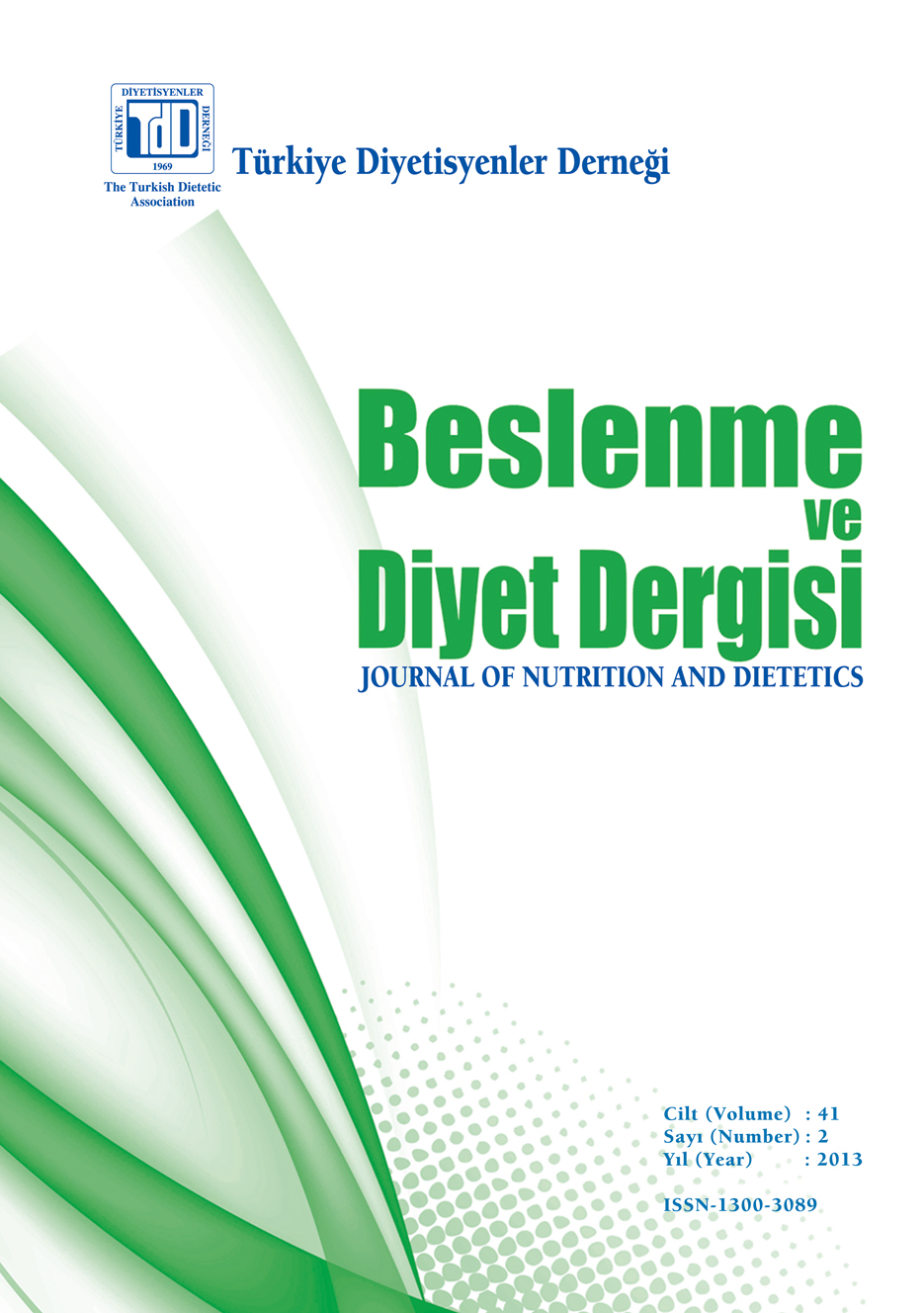Assessment of the Children’s Nutrition Habits, Food Preferences and Obesity Status
Keywords:
Children, food preferences, nutrition, obesityAbstract
Aim: This research was planned to determine the children’s food preferences, to identify the differences on food preferences according to gender, and to evaluate the general nutrition habits and obesity status. Subjects and Methods: In this research, a total of 82 students (40 boys and 42 girls) between the ages of 10-17 were included. Children’s body weight, height, waist circumference measurements were taken and body mass index (BMI) was calculated. BMI was evaluated with World Health Organization (WHO) percentiles according to age and gender. A questionnaire was applied to determine general nutrition habits. Food preferences were investigated with food diversity form with 107 food items. By asking whether they tried those foods or not, they were asked to score the foods between 1-5. Results: It was found that 28.0% of the children were frequently skipping meals and that breakfast was the most frequently skipped meal. A total of, 17.5% of the males and 7.2% of the females between 10-13 years, 15.0% of the males and 4.7% of the females between 14-17 years were overweight. There was no difference between the tried number of foods according to gender (p<0.05). It was found that females gived higher scores than males to the vegetables (such as, cucumber, tomato, carrot, lettuce, cauliflower, cabbage, brussels sprout, broccoli, beet, pursley, grape leaves) (p<0.05). It was determined that males gived higher scores to sausages, cured spiced beef, döner/İskender kebab, Turkish pizza, coke and energy drinks than females (p<0.05). Conclusion: A high rate of obesity at young ages demonstrated that the prevalence of obesity among the young population may increase in future years. Determination of food choices were required in order to provide against obesity and bring healthy eating habits. Therefore nutrition education about correction of wrong eating habits such as skipping breakfast, and preference for healthy foods at meals should be given to the children.

